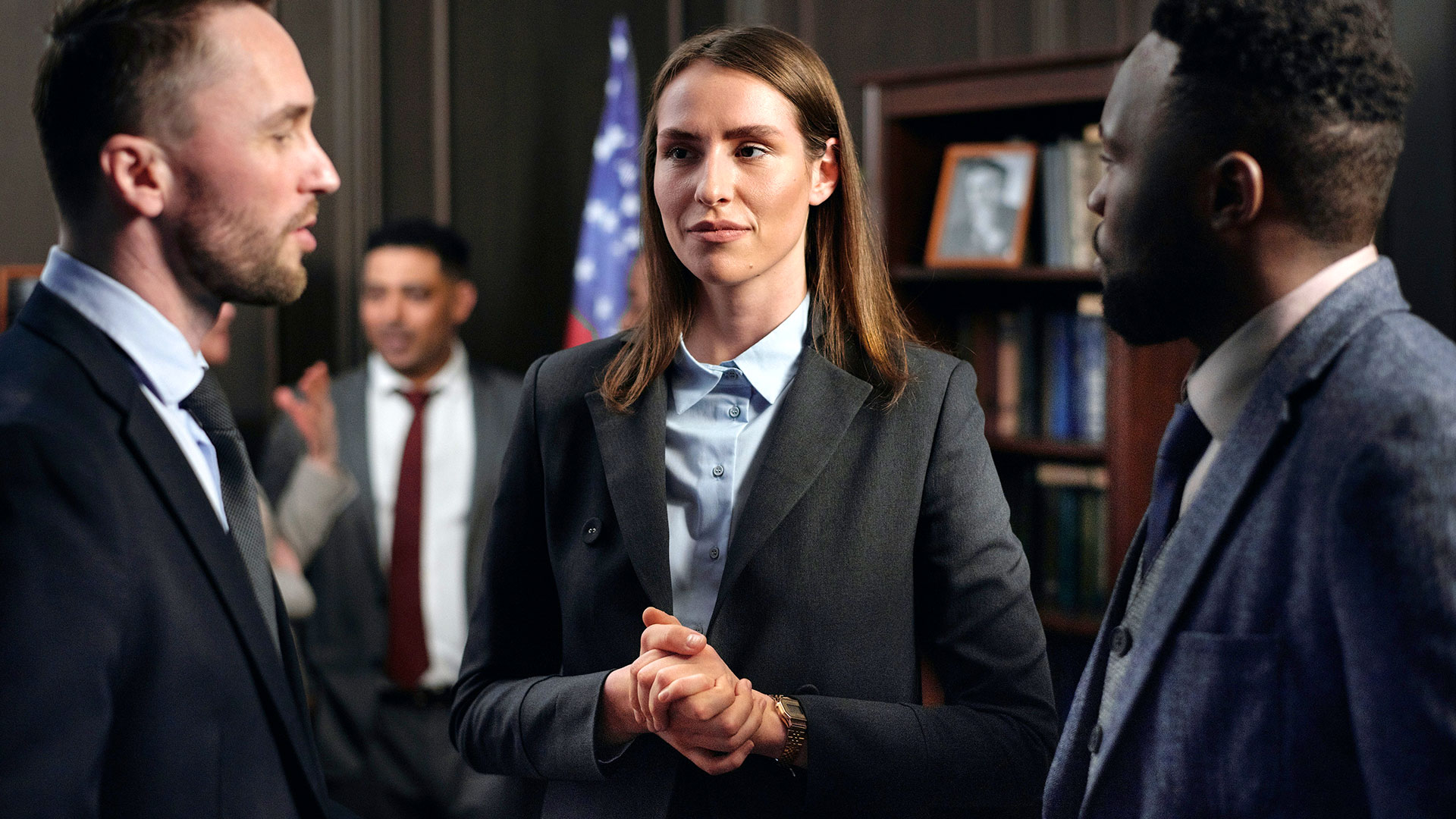
What Is One Reason Prosecutors May Decide to Dismiss Cases?
Prosecutorial dismissals in the criminal justice system are a common occurrence, and they often prompt questions about the underlying reasons. Prosecutors possess the authority to initiate or terminate criminal cases, and the decision to dismiss charges can be influenced by a variety of factors. One of the most straightforward reasons for why prosecutors may decide to dismiss cases is the lack of sufficient evidence to secure a conviction. In adherence to the principle of justice, prosecutors have an ethical obligation to only pursue cases in which they can establish guilt beyond a reasonable doubt. Cases can also be dismissed when key witnesses become unreliable or their credibility is called into question, potentially undermining the prosecution’s chances of success.
Legal technicalities, such as violations of the defendant’s constitutional rights, mishandling of evidence, or procedural errors, can lead to dismissals. These are often due to the prosecutor’s ethical duty to uphold the law. Limited resources, including time, personnel, and funding, can also play a role in prosecutorial dismissals. When prosecutors lack the necessary resources to investigate and prepare a case adequately, they may reluctantly choose to dismiss it. Plea agreements can result in the dismissal of charges. Defendants may negotiate with prosecutors, pleading guilty to a lesser charge or receiving a reduced sentence in exchange for their cooperation or guilty plea.
Prosecutorial discretion allows prosecutors to prioritize cases based on the needs of the community and available resources, leading to changes in legal priorities over time. This may lead prosecutors to dismiss certain cases to focus on more pressing issues or reduce case backlogs in the justice system. Understanding the multifaceted reasons behind prosecutorial dismissals is vital for a transparent and equitable criminal justice system. These decisions often involve a delicate balance between the pursuit of justice and the practical constraints of the legal system, reflecting the complex interplay of legal, ethical, and resource considerations that prosecutors must navigate in their roles.
The Burden of Proof: A Stalwart Principle
The burden of proof is a fundamental legal principle that dictates the responsibility of parties in a case to provide evidence to support their claims or defenses. It upholds the presumption of innocence in criminal cases and ensures fairness by preventing baseless accusations. This principle also encourages accountability and diligence in legal practice. Judges and juries play a critical role in evaluating evidence to determine if the burden of proof has been met. In essence, the burden of proof is a cornerstone of the legal system, essential for fairness and the protection of individual rights.
The Role That Evidence Plays
At the heart of every criminal case lies the burden of proof, a principle deeply rooted in the legal landscape. Prosecutors are tasked with the responsibility of proving the defendant’s guilt beyond a reasonable doubt. In situations where evidence is insufficient, contradictory, or tainted, prosecutors face a daunting dilemma. Insufficient evidence can weaken the case, making it vulnerable to skilled defense attorneys. In such scenarios, the prosecutor might opt for dismissal to avoid the embarrassment of a weak case collapsing in court.
The Integrity of Evidence
The integrity of evidence is paramount in any legal proceeding. If evidence is obtained illegally, tampered with, or compromised in any way, it jeopardizes the entire case. Prosecutors, upholding the ethical standards of the legal profession, are obligated to dismiss cases where evidence integrity is compromised. This not only ensures a fair trial but also upholds the credibility of the justice system.
Legal Technicalities: The Achilles’ Heel of Prosecution
In the realm of law and justice, legal technicalities stand as the Achilles’ heel of prosecution, capable of unraveling cases and undermining the pursuit of truth and justice. These technicalities, seemingly insignificant details, rules, or procedural errors, are deeply rooted in the principles of due process and fairness. They exist to safeguard the rights of individuals within the legal system, preventing abuses of power, overreach, or shortcuts that could compromise justice. Legal technicalities ensure that all parties involved in a legal dispute are treated justly and that their constitutional rights are upheld, especially the fundamental presumption of innocence. Any infringement upon this presumption can have severe consequences, potentially leading to wrongful convictions and eroding the integrity of the criminal justice process.
Procedural Errors and Due Process Violations
Legal procedures are labyrinthine and prone to intricate rules and regulations. A single misstep in the legal process can become the Achilles’ heel of a case. Prosecutors must meticulously follow every legal procedure, ensuring that the defendant’s constitutional rights are safeguarded. Failure to adhere to due process, such as Miranda rights violations or mishandling of evidence, can lead to case dismissals. Prosecutors, aware of these pitfalls, might dismiss cases to avoid these legal landmines.
Statute of Limitations: The Ticking Clock
Every crime has a statute of limitations, a predetermined timeframe within which legal proceedings must commence. If the prosecution fails to initiate the case within this window, the defendant can no longer be tried. Prosecutors must be acutely aware of these limitations. A missed deadline, even by a day, can render a case null and void. Dismissing cases due to statute of limitations issues is not a sign of negligence, but rather a consequence of the rigid legal framework within which prosecutors operate.
Witness Credibility: The Fragile Pillar of Testimony
Witness testimony serves as one of the most significant pillars of evidence. Witness credibility, encompassing honesty, accuracy, and reliability, is paramount in determining the outcome of legal proceedings. Witnesses, whether laypersons or experts, provide firsthand accounts or professional opinions that can sway verdicts, secure convictions, or exonerate the accused. Yet, this critical element of the legal process is far from infallible; it is a fragile pillar with intricate nuances. Various factors can influence witness credibility, including personal biases, emotions, perceptions, and memory limitations, which may affect the accuracy and reliability of their accounts. A witness’s demeanor, consistency in statements, and their ability to withstand cross-examination all contribute to the perception of credibility, underscoring the fragile nature of this pillar. The role of corroboration, involving independent confirmation of a witness’s account, becomes essential to mitigate this fragility, strengthening the overall case with additional evidence.
Evaluating witness credibility is a complex task for judges and juries who must weigh the testimony presented while considering the potential motivations, biases, and inconsistencies of the witnesses. The subjectivity involved in this judgment introduces inherent fragility in the process. Witness credibility has profound consequences for the justice system, as a witness’s credibility can significantly impact the case outcome, potentially leading to wrongful convictions or the acquittal of the guilty. This risk underscores the importance of thorough investigations, adherence to proper legal procedures, and the necessity for checks and balances to mitigate the inherent fragility in witness testimony. Witness credibility, while indispensable, is a facet of the legal system that requires scrutiny and consideration to ensure the fair and accurate administration of justice.
Eyewitness Testimonies in Cases
Eyewitness accounts are inherently flawed even though they are compelling. Human memory is malleable and susceptible to suggestion and distortion over time. In cases heavily reliant on eyewitness testimonies, prosecutors must tread cautiously. If new information arises casting doubt on a witness’s credibility, prosecutors might reassess the viability of the case. Dismissing a case due to unreliable witnesses is a testament to the prosecutor’s commitment to truth and justice.
Witness Cooperation and Reliability
Witness cooperation is vital for a successful prosecution. However, witnesses may recant their statements or become uncooperative, often due to fear, intimidation, or external pressures. In such situations, prosecutors face a difficult choice. Continuing with a case lacking essential witness cooperation can lead to failure in court. Dismissing the case might be a pragmatic decision, preserving resources for cases where witnesses are willing to testify truthfully and reliably.
The Greater Good: Prosecutorial Discretion in Action
Prosecutorial discretion, a fundamental element of the criminal justice system, allows prosecutors to make informed choices about which cases to pursue and how to handle them, all while balancing the pursuit of justice with considerations of fairness, efficiency, and the greater good of society. One of the ways this discretion is applied is by focusing on serious offenses and prioritizing cases involving violent crimes, major financial fraud, or public safety threats. By directing limited resources towards these high-impact cases, prosecutors aim to safeguard the community, aligning with the principle of the greater good.
Prosecutors have the authority to implement diversion programs for non-violent offenders in many jurisdictions. Instead of criminal charges, these programs offer alternatives like rehabilitation, counseling, or community service. This approach benefits both accused individuals and society by addressing the root causes of criminal behavior, reducing recidivism, and providing individuals with opportunities for rehabilitation and reintegration.
Prosecutors must also balance the interests of the state, victims, and the community when making charging and plea decisions. When victims prefer restorative justice or alternative resolutions, prosecutors can use their discretion to accommodate these preferences, promoting healing and the restoration of the community’s well-being.
Resource allocation is another area where prosecutorial discretion is critical. Managing limited resources efficiently involves prioritizing cases that matter most to the community and the greater good, such as those involving organized crime, public corruption, or widespread criminal enterprises.
Prosecutorial discretion allows for a nuanced, case-by-case assessment that considers mitigating factors, which may not be immediately apparent. This flexibility enables prosecutors to exercise judgment and explore alternative resolutions for individuals driven to criminal behavior by external circumstances like poverty, substance abuse, or mental health issues. Such consideration contributes to the overall betterment of society by addressing the complexities of individual cases. Prosecutorial discretion, when judiciously exercised, is a pivotal instrument in achieving the greater good within the criminal justice system. It empowers prosecutors to make decisions that prioritize the pursuit of justice while considering fairness, efficiency, and the needs of victims and the community. By directing attention to serious offenses, implementing diversion programs, balancing competing interests, allocating resources effectively, and addressing mitigating factors, prosecutors work to create a legal system that upholds the law while serving the broader interests of society. In this manner, prosecutorial discretion becomes a vital means in the pursuit of the greater good within the realm of justice.
The Delicate Balancing Act of Justice
Case dismissals stand as a testament to the complexities of the legal system. Prosecutors, wielding immense power and responsibility, must navigate a labyrinth of legal, ethical, and societal considerations. The reasons behind case dismissals are seldom arbitrary; instead, they reflect a delicate balancing act between justice, fairness, and pragmatism.
Understanding these reasons not only illuminates the prosecutorial process but also underscores the challenges inherent in seeking truth and upholding justice. As we look at the layers of complexity shrouding prosecutorial dismissals, we gain a profound appreciation for the nuanced decisions made within the hallowed halls of the legal system. Armed with this knowledge, we can engage in informed discussions about the intricacies of justice, fostering a society that values not just the outcome of legal proceedings but also the integrity of the process itself.




